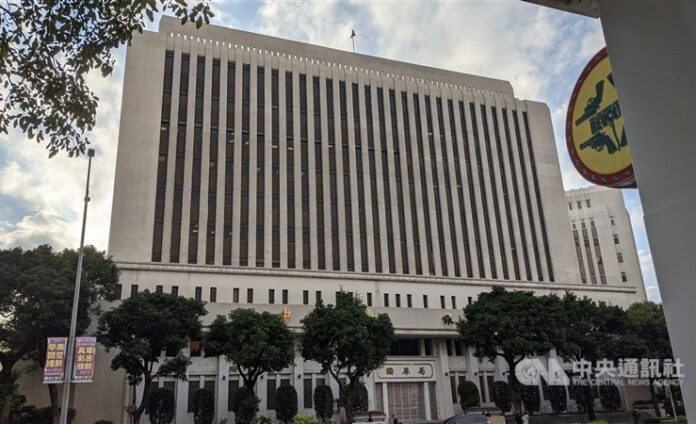Taiwan secured the position of the world’s sixth-largest net creditor in 2024, according to figures released by its central bank, continuing its long-standing role as a major global lender. However, the nation slipped one notch from its 2023 ranking due to a significant rise in foreign-held equity assets, which dramatically increased Taiwan’s external financial liabilities.
📊 Understanding the Numbers
- External Financial Assets (EFA):
At the end of 2024, Taiwan’s assets abroad—comprising foreign bonds, equities, foreign exchange reserves, and outward direct investments—reached US$3.03 trillion, a rise of US$148.17 billion or 5.1% year-over-year. - External Financial Liabilities (EFL):
In contrast, liabilities to foreign investors grew much more sharply by US$301.15 billion, or 25.6%, totaling US$1.48 trillion. This dramatic growth is largely attributed to foreign institutional investors (FIIs) increasing their equity holdings in Taiwan’s rapidly appreciating stock market. - Net International Investment Position (NIIP):
The difference between EFA and EFL yielded an NIIP of US$1.56 trillion, marking a drop of US$152.98 billion or 9.0% from 2023.
Despite the drop, Taiwan remained ahead of economic powers such as Switzerland, South Korea, and the Netherlands, underscoring its global financial strength and surplus-generating capability.
💡 What Caused the Decline in Taiwan’s NIIP?
The decline in Taiwan’s NIIP isn’t a sign of economic weakness. On the contrary, it reflects a booming domestic capital market in 2024.
According to Chen Pei-wen (陳裴紋), deputy head of the central bank’s Department of Economic Research:
“The local electronics index soared 43.2% last year, which significantly increased the valuation of Taiwanese stocks held by foreign investors. This resulted in a notable rise in Taiwan’s financial liabilities.”
The Taiwan Stock Exchange’s Taiex index surged by 28.5%, making it the second-best performing major index globally, only behind the Nasdaq’s 28.6% rise. This performance was driven by investor confidence in Taiwan’s semiconductor and electronics sectors, led by companies like TSMC, MediaTek, and ASE Group.
🌍 Global Comparison of Net Creditors (2024)
| Rank | Country | NIIP (USD Trillion) |
|---|---|---|
| 1 | Germany | 3.64 |
| 2 | Japan | 3.49 |
| 3 | China | 3.30 |
| 4 | Hong Kong | 2.04 |
| 5 | Norway | 1.74 |
| 6 | Taiwan | 1.56 |
| 7 | Switzerland | 1.44 (est.) |
| 9 | South Korea | – Up from 11th |
South Korea, notably, moved up to 9th, benefiting from a 9.6% drop in its stock market in 2024. The resulting fall in foreign-held asset valuations improved South Korea’s NIIP, contrasting with Taiwan’s stock-fueled liability surge.
🔍 Expert Insight: The Double-Edged Sword of Capital Market Gains
While equity market gains typically reflect robust economic activity, for NIIP accounting, they may inflate liabilities if foreign investors hold substantial shares. In Taiwan’s case, it’s a wealth effect paradox—the nation is richer on paper, but its NIIP shrinks due to technical definitions.
Yet this also illustrates Taiwan’s appeal as an investment destination, particularly in high-tech industries, reinforcing its role as an essential player in the global value chain.
🧾 FAQs
What is NIIP and why is it important?
NIIP stands for Net International Investment Position. It measures a country’s total foreign assets minus its foreign liabilities. A positive NIIP indicates a country is a net creditor, meaning it lends more to the world than it borrows.
Why did Taiwan’s NIIP decline despite growth in assets?
Because liabilities—mainly due to rising foreign ownership of Taiwanese equities—grew faster than assets. The booming stock market caused these foreign-held investments to appreciate, inflating Taiwan’s liability side.
Does a lower NIIP mean economic problems for Taiwan?
Not at all. The decrease is a technical outcome of strong equity performance, which is generally a positive economic indicator. Taiwan remains financially robust.
Who are Taiwan’s top foreign investors?
Many are global asset managers and pension funds from the U.S., Japan, and Europe, investing heavily in Taiwan’s semiconductor and electronics sectors.
How does Taiwan’s NIIP affect its global economic standing?
A high NIIP supports currency stability, global creditworthiness, and investor confidence. It also gives Taiwan a cushion against external financial shocks.



